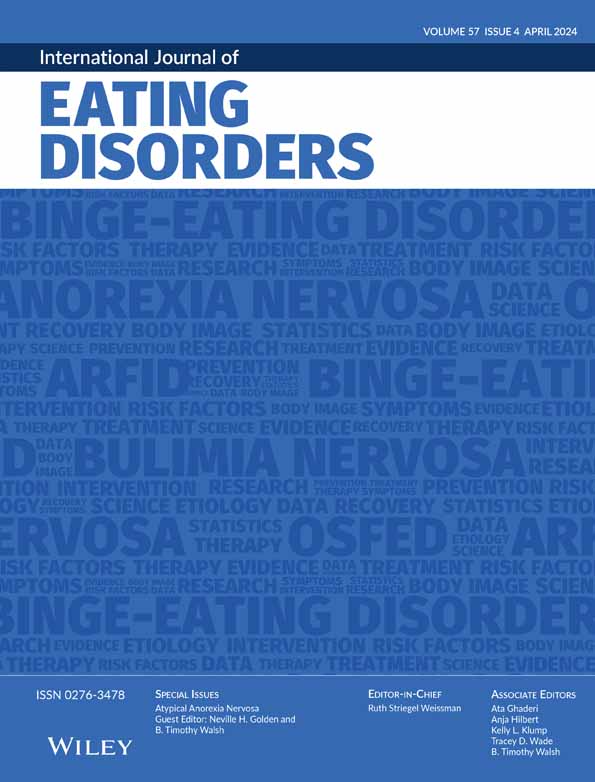Associations between low body weight, weight loss, and medical instability in adults with eating disorders
Abstract
Objective
The physical complications of atypical anorexia nervosa remain understudied, with most studies completed in adolescents. This study seeks to examine the impact of various weight measures as predictors of medical instability in a large cohort of adult eating disorder patients.
Methods
In this retrospective cohort study, the impact of admission body mass index (BMI), weight suppression, and recent weight loss (the rate of weight loss within the last 12 months) toward the development of medical complications of malnutrition were examined. Multivariable logistic regression assessed the association of binary clinical outcomes of interest with recent weight loss and weight suppression (adjusting for age, admission BMI, gender, and purging behaviors). Odds ratios (OR) and 99% confidence intervals were reported.
Results
Greater recent weight loss increased the odds of developing low prealbumin and reduced hand grip strength. A greater weight suppression was associated with increased likelihood of amenorrhea, reduced systolic blood pressure, nadir hemoglobin, and weekly weight gain upon nutritional rehabilitation. Lower admission BMI was predictive of all the medical outcomes examined, with the exception of bradycardia, and was generally the strongest predictor based on standardized coefficients.
Discussion
Recent weight loss and weight suppression are predictive of some of the physiologic changes of malnutrition, although low BMI is seemingly the greatest predictor for the development of these complications. These findings suggest that some patients with aggressive weight suppression and/or acute weight loss would benefit from medical stabilization, although this needs to be further defined.
Public Significance
In adults, low BMI seems to be a better predictor of medical complications than weight suppression or aggressive recent weight loss. In adults, greater weight suppression is associated with increased likelihood of amenorrhea, reduced systolic blood pressure, nadir hemoglobin, and weight gain upon nutritional rehabilitation.
CONFLICT OF INTEREST STATEMENT
The authors declare no conflicts of interest.
Open Research
DATA AVAILABILITY STATEMENT
The data that support the findings of this study are available on request from the corresponding author. The data are not publicly available due to the privacy or ethical restrictions.




